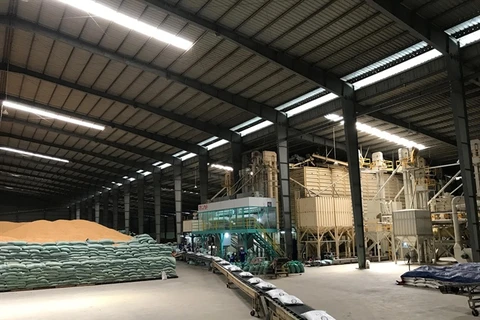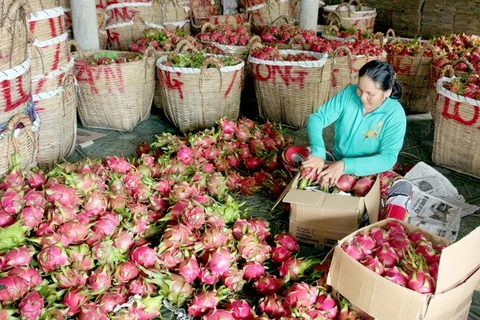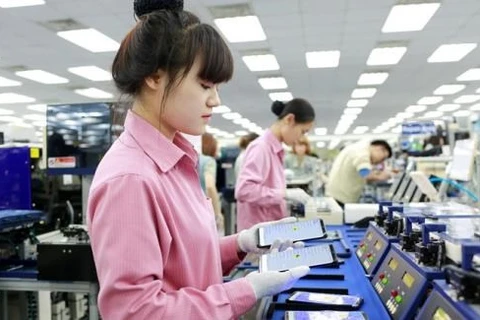Hanoi (VNA) – Meeting tougher technical standards in production and preservation is the key to helping Vietnam’s agricultural products, including fruits, actively raise their export volume and value, an official has said.
Nguyen Quoc Toan, Acting Director of the Agro Processing and Market Development Authority under the Ministry of Agriculture and Rural Development, made the remark at a workshop in Hanoi on June 19 that focused on the Republic of Korea (RoK)’s management system of the plant protection product (PPP) residue list for imported agricultural products.
He said although agricultural products of Vietnam boast huge export potential, only when they meet strict production and preservation standards can the possibility of being exported directly to such markets as the RoK, Japan, Taiwan (China) and Europe be improved.
Le An Hai, Deputy Director of the Department for Asian – African Markets of the Ministry of Industry and Trade, said that on January 1, 2017, the RoK applied a new mechanism for managing PPPs in oil containing nuts and tropical fruits. If these PPPs haven’t had their maximum residue limits (MRLs) registered in line with the RoK’s new regulation, their MRLs will be 0.01 ppm.
Though this measure is applied for all countries, it will limit the number and types of PPPs that can be used in Vietnam and directly affect the export of key products like coffee, peanuts, cashew nuts and tropical fruits to the RoK, he noted.
He added Vietnamese businesses’ pro-active learning of new information will help reduce technical risks greatly when they export fruits to this Northeast Asian market in the future.
Meanwhile, Toan highly valued the cooperation between relevant agencies of Vietnam and the RoK in attracting local authorities and agricultural production and exporting firms’ attention to new regulations and food safety.
At the event, Lee Soon-Ho, a representative of the RoK’s Ministry of Food and Drug Safety, pointed out the fruits on which PPP residue needs special attention from Vietnam when they are exported to his country.
He also warned local companies about the 370 PPPs subject to specialized examination at designated ports in the RoK. Nearly 140 of the products haven’t had MRLs in this market.
He urged Vietnamese businesses to swiftly review the PPPs without MRLs used on their export fruits and send MRL registration dossiers to the RoK ministry.
According to the Vietnamese Ministry of Industry and Trade, trade between the two countries have risen sharply over the last 25 years to reach 61.5 billion USD in 2017, surging 123 times from 1992 when they set up diplomatic ties and accounting for 14.4 percent of Vietnam’s total trade revenue.
After the Vietnam-RoK Free Trade Agreement took effect in December 2015, bilateral trade, including in agricultural products, has recorded impressive growth.
In 2017, the RoK was the second largest trade partner of Vietnam, which in turn became the eighth biggest export destination of the RoK.-VNA
VNA

























